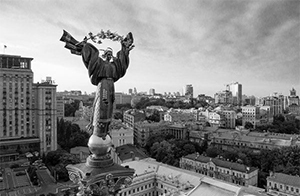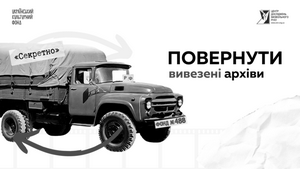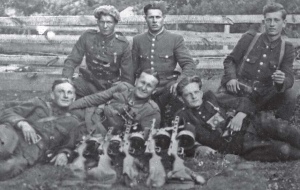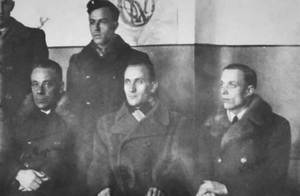A Nation of Dreamers
Ukrainians have been a nation of dreamers. In our history, there are an unusual number of Ukrainian individuals who participated in the human effort to fly - beyond the horizon and above it. Sikorsky taught people to fly as Leonardo once imagined. Korolyov sent a man into space. Kondratyuk (Sharhei) – helped pave the way to the Moon. They all dreamed the impossible dream. Perhaps that is why "Antonov" named the world's largest plane Mriya, the Ukrainian word for "Dream"?
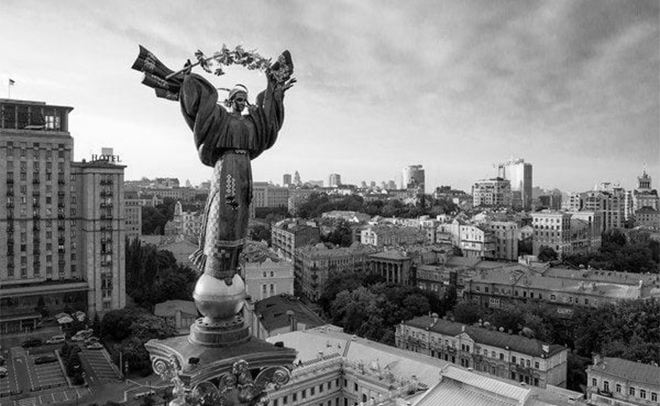
Ukrainians have been a nation of dreamers.
In our history, there are an unusual number of Ukrainian individuals who participated in the human effort to fly - beyond the horizon and above it. Sikorsky taught people to fly as Leonardo once imagined. Korolyov sent a man into space. Kondratyuk (Sharhei) – helped pave the way to the Moon. They all dreamed the impossible dream. Perhaps that is why "Antonov" named the world's largest plane Mriya, the Ukrainian word for "Dream"?
Where do such an uncommon number of great dreamers come from?
This is a question related to why Ukrainians have 12 synonyms for the word "horizon": обрій, небозвід, небосхил, крайнебо, круговид, кругозір, кругогляд, виднокруг, видноколо, виднокрай, небокрай, овид. Our neighbors, the Poles and the Russians, have just three words each to define this phenomenon. English has two.
Why has it been so important for Ukrainians to peer beyond the horizon?
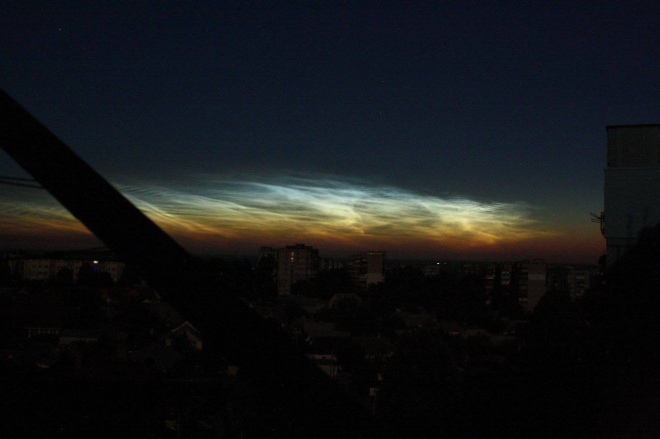
Ukrainian freedom was protected neither by high mountains like Switzerland, nor by wide straits. Ukraine is not Britain; Ukraine is not an island. Ukraine is a boundless steppe unlimited by any obstacles. The distance from Luhansk to Lviv is 77 kilometers (48 miles) more than from Prague to London.
Boundless space has become a place of unlimited freedom. The word "will" in the Ukrainian language implies both "space" and "freedom." Similarly, however, history's evil winds from the East and West have also blown through this space. Ukraine is Europe's Tornado Alley. Historical tornadoes. Bloodlands. There was no place to hide from the twisters of history. They could only be confronted … With a saber. With weapons. With one's own power. Otherwise, they will sweep you away.
For a long time, the horizon was a matter of security for Ukrainians. The Great Steppe, which began here and ended on the Pacific coast, repelled waves upon waves of nomads with the regularity of tides. A column of dust kicked up by the hooves of horses in another onslaught of nomads from beyond the horizon signaled the approach of mortal danger. One must look beyond the horizon, peer yonder for centuries to stay alive. And you must cultivate this steppe; tread this land behind a plow with a saber or a musket on your shoulders. Looking around. Keeping an eye on the horizon.
And so every nomadic tsunami from the Great Steppe, every successive Horde fostered two survival strategies here. Either heroically resist the onslaught. Or withdraw and hide in the folds of this earth. To become a seed that will germinate in better times.
Evil east winds alternated with evil north winds, and north winds by west winds. There are no benevolent winds of history here.
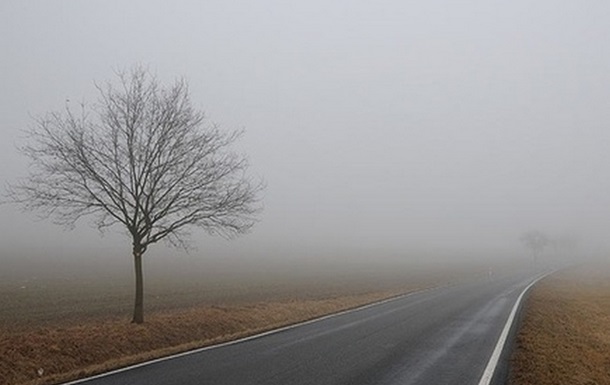
American historian Timothy Snyder asserts that more Ukrainians died in the armed struggle against the Nazis than Americans, more than the French, more than the British, indeed more than Americans, French and British combined. Both of the most horrific totalitarian regimes of the 20th century broke their teeth against Ukraine thanks both to those who chose heroic resistance to dictatorship and those who hid and turned into the seeds of future freedom.
The effort has been a covert relay of liberty under the symbol of the ancient Ukrainian Trident. This state emblem of (10th century) Prince Volodymyr the Great was restored from oblivion to designate freedom in the Ukrainian People's Republic. But this republic did not withstand the pressure of another historical tornado.
Yale History Professor Timothy Snyder sadly joked that in years gone by, one could do nothing - and get freedom and independence for a country like Poland or Czechoslovakia; and one could fight like Ukraine - to get nothing. In that ugly era, when no one wanted to fight for Danzig and settled in Munich for nine months of peace for themselves and the freedom of another nation, Ukraine was a country without allies. Poland and Czechoslovakia were, at least, visible on the horizon. Ukraine found itself beyond the geopolitical skyline of the Western world. Neighbors - Romania, Poland, Hungary and Communist Russia - happily divvied up the hemorrhaged land.
The Bolshevik dictatorship was the most bloodthirsty. "Schedryk (Carol of the Bells)" - the most popular Christmas melody in the world - was created by composer Mykola Leontovych. He was murdered by some communist who asked to spend the night at his home. And thus the story of the world's most popular Christmas tune became a story of trust and distrust. This is how a new reality was born, in which it is dangerous to trust others. Even amid the ringing of Christmas bells.
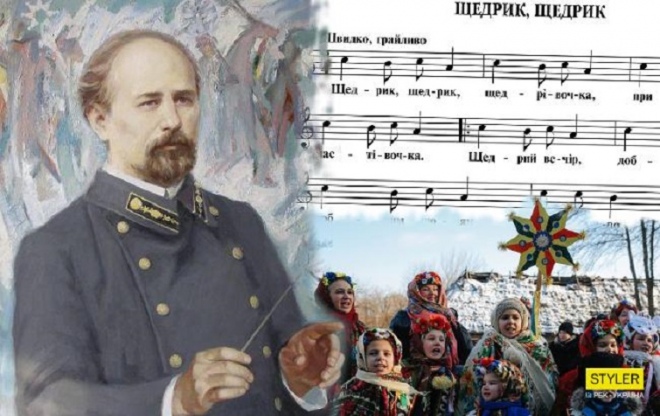
In Ukraine, both totalitarian regimes reaped generous harvests of sorrow: in the 20th century, Communism and Nazism claimed nearly 16-million human lives on this land. Yet, another tornado of history did not halt the relay of liberty. Those who fought for the freedom of Ukraine at the beginning of the 20th century passed the baton to succeeding generations.
After the Second World War, the communist regime imprisoned hundreds of thousands of Ukrainians from the newly-annexed provinces of Galicia and Volyn on charges of involvement in the Ukrainian movement for freedom and independence. The prisoners rebelled in the Gulag – Vorkuta, Norilsk, Kengir. They forced communist authorities to "switch on" the Thaw. Khrushchev was not enlightened in 1956 - he simply didn't have the power to control the Gulag as before.
That Evil Empire would only endure on a foundation of fear. Soon the system was shaken. The less fear remains, the more the seeds of freedom grow. The Ukrainian Declaration of Independence was written by an individual who spent 25 years in the camps. Levko Lukyanenko had been imprisoned for fighting for human rights, for freedom, for the self-determination of his country.
On December 1, 1991, Ukrainians destroyed the Evil Empire. Three weeks later, all that remained was for Soviet President Mikhail Gorbachev to admit this fact and resign.
The "end of history" for both totalitarian regimes did not mean that the national character of Ukrainians was unscarred. The ubiquity of death during the Holodomor and the war led to a devaluation of human life; insufficient means of survival bred moral degradation. Lack of trust "in others" gave birth to a dual morality "among one's own." It also underpinned nepotism and domestic corruption. The common good fell victim to competitive selfishness. The values of survival defeated those of self-actualization.
But this is how Ukrainians became champions of survival. Yes, majestic clouds ascending beyond the steppe's endless horizon play an equally majestic role in everyday life with the rise of new generations of dreamers. Yes, Ukrainians must now to learn to dream again and look into the clouds to fill 12 synonyms for the word "horizon" with new meaning.
Hunger in the past is now compensated by culinary hedonism, swinging from "What did you eat, my darling daughter" to the restaurant boom in the capital and larger cities. Borsch, Ukraine's main national dish, is a concentrate of Ukrainian history. Its cooking technology hails from the steppe, where everything is first fried and later boiled. The process could only emerge on the borders of steppe and forest – everything edible is thrown into the pot. Each generation of Ukrainians adds new ingredients to its borsch. There were no potatoes or tomatoes during Hetman Bohdan Khmelnytsky's time, though borsch existed. Borsch always changes as do Ukrainians, even as they remain themselves.
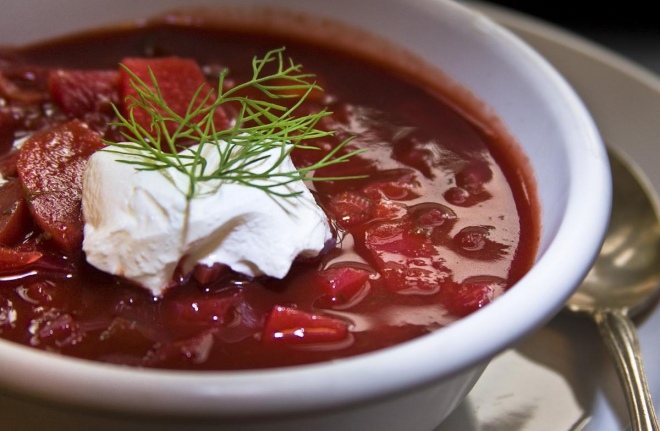
Ukrainians have turned into leukocytes of freedom. Whenever another totalitarian scourge begins to spread in Europe, it loses its killing power in Ukraine. Just as leukocytes fight a virus, a multitude of Ukrainians disappear in the struggle against tyranny. But the virus of tyranny mutates into the most terrible virus of populism.
Ukraine is a reminder of freedom when nobody in Europe feels any need for it. Through January 2014, the Kyiv Maidan and Revolution of Dignity were the largest successful non-violent protests for freedom and human rights in world history. Roughly 250,000 people heard Martin Luther King deliver his "I Have a Dream" speech at the Lincoln Memorial in Washington in 1963. The Velvet Revolution on Prague's Wenceslas Square in November 1989 gathered crowds of 200 to 500-thousand. The fall of the Berlin Wall and the renowned Polish Solidarity Union were accompanied by more modest crowds compared to Kyiv. Gandhi's 1930 Salt March lasted less than a month and never drew rallies of more than 100,000. In Kyiv, a million Ukrainians poured onto the Maidan, which became a victorious Tiananmen. The most popular message from the Maidan was: "Mom, I've eaten and have my hat on!" This slogan combined Ukrainian self-effacing irony and the desire for freedom with a thousand-year experience of survival.
When the non-violent stage of the Revolution of Dignity reached its climax and shots rang out on the Maidan, those who braved machine guns and sniper rifles in plastic construction helmets and wooden shields would later be named "The Heavenly Hundred."
In the vastness of the sky's storm clouds, our ancestors saw branches of the world tree - The Tree of Life. In ancient ritual songs – Christmas carols and New Year's songs - the Thunderer's messenger birds pluck grains from branches of the Tree of Life. With spring thunder, these grains awaken from the very horizon in the folds of this earth. The seeds of freedom sprout again.
The three-pronged and two-pronged emblems of the ancient princes looked like other thunder symbols on the horizon. After all, Perun the Thunderer was the patron deity of Kiev's royal family. The symbol of Volodymyr the Great following the Baptism of Kyivan Rus, the Trident, was a stylish reinterpretation of common weaves that represented the Tree of Life. Over the past century, the Trident has become a symbol of the struggle for freedom. Some read the word "WILL" in its pattern. Upon its reinstatement as part of Ukraine's national regalia, Ukrainians reverted from the dream of freedom to freedom of action.
The sky in the East is once again ablaze. The evil north winds rage again over this land. Ukrainians are once again defending the border of freedom's realm. Ukrainians again have something to dream about.
-----------------------------------------------------
And "Historical Truth" dreams of permanent funding.
For 13 years, historical circumstances have not helped facilitate this effort.
Nonetheless, we still work. Also, while it is still possible to transfer donations to my account, I will distribute the funds to our new projects and will support of old ones:
5363 5420 9718 5848
Please share!
Translated from the Ukrainian by Peter Fedynsky
